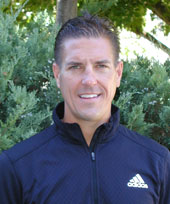非常抱歉,
你要访问的页面不存在,
非常抱歉,
你要访问的页面不存在,
非常抱歉,
你要访问的页面不存在,
验证码:

职称:Professor
所属学校:Kansas State University
所属院系:Biochemistry
所属专业:Biochemistry
联系方式:785-532-3154
B.S. 1996, Saint Vincent College, Latrobe, PA Ph.D. 2000, The Johns Hopkins University School of Medicine, Baltimore, MD.
•Innate Immunity •Molecular Basis of Infectious Diseases and Host-Pathogen Interactions •Structural Biology and Molecular Recognition My laboratory is taking a multidisciplinary approach toward a better understanding of the events which lay the foundation for initiation and propagation of staphylococcal disease. The ultimate goals of this research program are two-fold. The first is to use a structure-based approach to expand our basic knowledge of the various host/pathogen interactions that occur between S. aureus and human physiological systems. As multiple antibiotic-resistant strains of this pathogen have emerged and disseminated throughout the public and health care setting, the number of therapies that effectively combat S. aureus infection has grown dangerously low. Consequently, if we are to provide sufficient measures against S. aureus infection in the future, we need to further our basic understanding of this how it interacts with and defends itself against the human body. Our second goal is to capitalize upon the information obtained from analysis of these host/pathogen interactions toward developing new treatments for human inflammatory diseases. For example, it is now understood that the complement system lies at the heart of a wide-range of inflammatory and vascular disorders in humans. Because studies from the last decade have shown that S. aureus is particularly adept at evading complement attack, we believe that naturally-occurring staphylococcal complement inhibitor proteins may be useful templates for new types of anti-inflammatory drugs. Other work has also shown that S. aureus actively blocks a number of other disease-associated defense and repair processes, including coagulation, neutrophil transmigration, and angiogenesis. All of this suggests that important breakthroughs for treating a number of non-infectious human diseases may actually be found by studying the biology of this important pathogen.